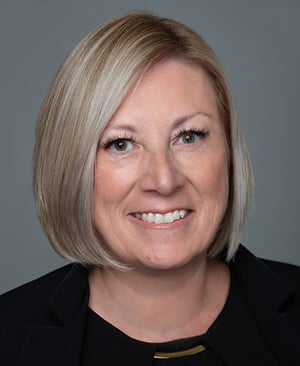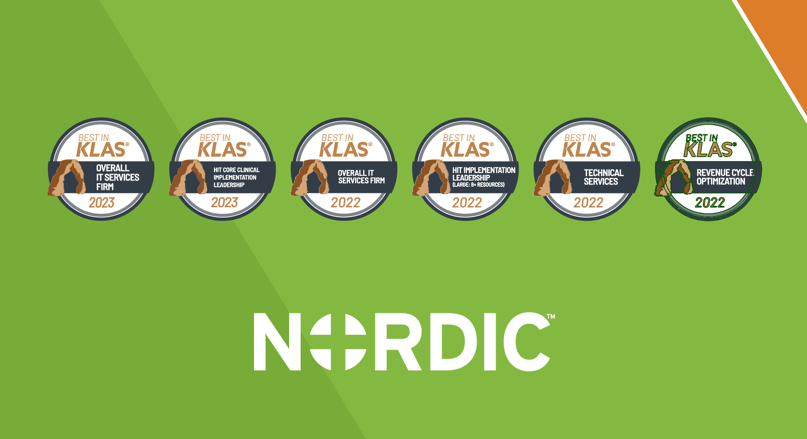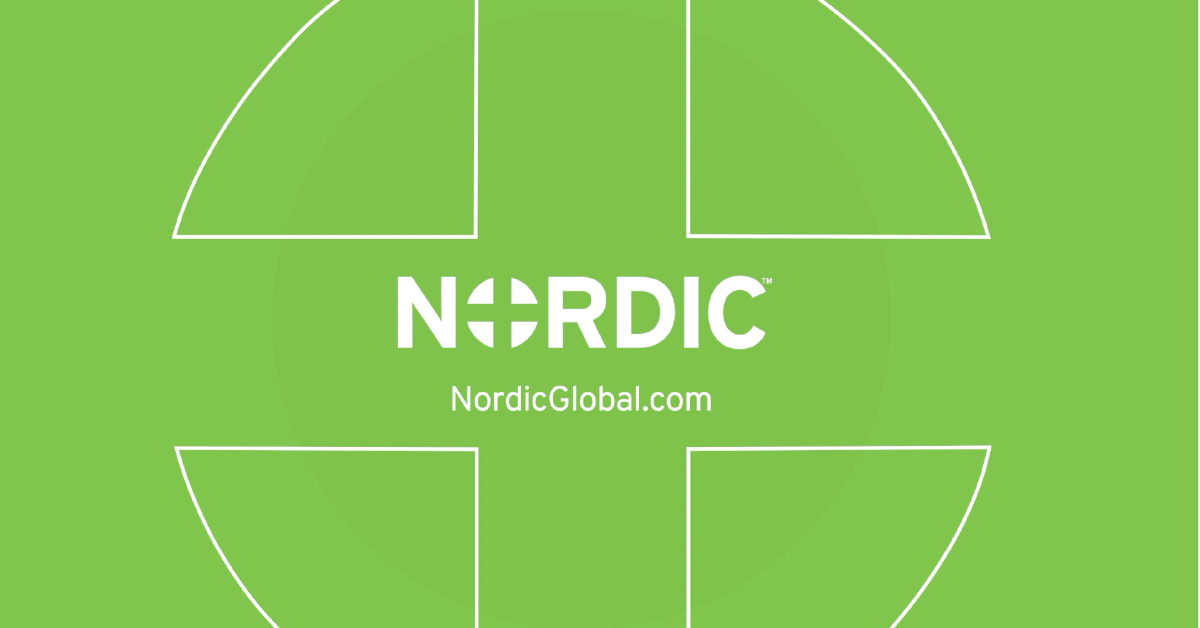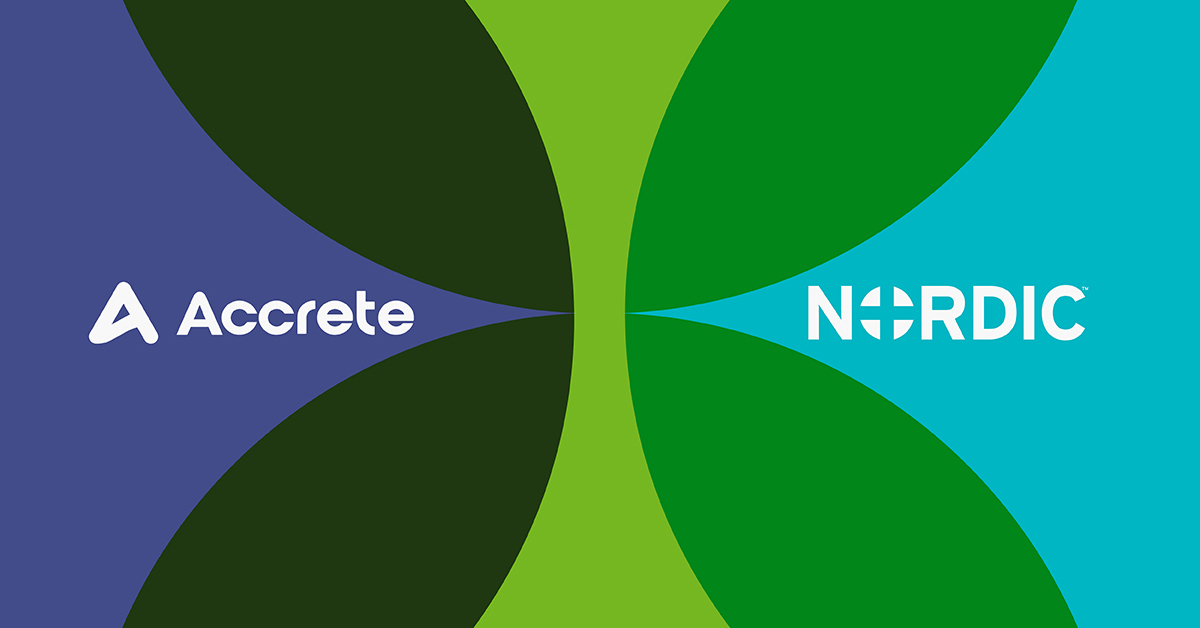Since joining forces with Healthtech Consultants, Canada’s leading health IT consulting firm, we’ve enjoyed getting to know our new Canadian colleagues and client partners. We’re also learning a lot about Canada as a whole – taking in their Canada-nice culture (it’s true, everyone’s so nice there!), their coffee (Tim Hortons anyone?), and the key drivers behind their publicly-funded healthcare initiatives.
One person who’s been instrumental in bringing our teams together is Healthtech President Terri LeFort. Since joining Healthtech in 2002, Terri’s overseen countless EHR implementations, serving as project manager for many of Canada’s largest hospitals and providing strategic leadership for assessment, planning, and implementation projects.
 She also has more than 30 years of experience working in various healthcare settings in Canada. Her clinical expertise combined with deep knowledge of MEDITECH and other EHRs have proven to be an invaluable combination for Healthtech’s client partners. Nordic’s also very fortunate to be able lean on her expertise in these areas.
She also has more than 30 years of experience working in various healthcare settings in Canada. Her clinical expertise combined with deep knowledge of MEDITECH and other EHRs have proven to be an invaluable combination for Healthtech’s client partners. Nordic’s also very fortunate to be able lean on her expertise in these areas.
We recently sat down with Terri to discuss the healthcare landscape in Canada, key drivers and priorities for leaders there, as well as the challenges and opportunities Healthtech is helping them address. She also gives an overview of her background, sharing how she made her way from an acute care nurse to the president of Canada’s top health IT consulting firm.
If you’re interested in learning more about Healthtech’s solutions or if you’d like to speak with Terri, please reach out. She’d be happy to listen to your needs to determine how we can help your organization provide the best care possible for patients. You can also see what we mean by the whole “Canada-nice” thing.
Nordic: Tell us a little about your background. How did you get started in health IT?
Terri LeFort: I actually got my start 30 years ago on the clinical side as a registered nurse. My nursing background is pretty broad. I’ve worked within acute care, public health, and did some home care as well. I’ve also worked in several provinces across Canada.
After about 15 years at the bedside, I moved into management roles. Around this time, it also happened to be some of the early days of a few major Canadian health IT initiatives across the country. I was asked to lead several implementations and initiatives that included technology. I worked with everything from provincial reporting systems to implementing electronic tools within clinical environments. That work sparked my interest in informatics.
Nordic: How did you make your way to Healthtech?
Terri: The project that started me on the course to work for Healthtech involved a public health initiative for Alberta. It required provincial reporting on immunization. At the time, I was the regional director for community health services in one of Alberta’s regional health authorities.
All the regional health authorities were required to submit this immunization data electronically, which was a struggle, because at the time, public health information was still on paper. Electronic capture of nursing documentation and medication administration in Canada and the U.S. was in its infancy at this time as well. We implemented electronic capture of immunization data by public health nurses in clinics and schools using MEDITECH’s nursing and pharmacy modules. We achieved great results, and the initiative received international recognition.
I happened to speak about the initiative at a conference where Healthtech was exhibiting. I started chatting with them and within a couple months, I had an offer to come work for them as a consultant. That was 2002 and I’ve been with Healthtech ever since. I moved through the consulting side into management roles, eventually becoming a director, vice president, and then partner.
Looking back, it’s crazy to think that I got to this point in my career because of the success of a special immunization project I took on as a nurse leader.
Nordic: Looking at the healthcare landscape in Canada, where do you see leaders focusing their efforts? What’s driving their priorities?
Terri: In Canada, healthcare is a public service and not private industry. Leaders are largely focused on health quality and how to best spend valuable healthcare dollars to make the greatest impact on patients’ health outcomes. They need to strategically allocate these dollars to ensure they’re providing the best care possible. That's where organizations like Healthtech and Nordic can help.
Nordic: Is there a universal initiative that supports health quality in Canada? Or do the initiatives vary by province?
Terri: Healthcare is a provincial responsibility. Policies and initiatives therefore differ province by province. Obviously, some of the drivers are universal. Take health quality, for example – every province has a focus on health quality and a structure to support quality initiatives. However, initiatives and/or priorities that support health quality in each province can vary.
In Ontario, the government is focused on rolling out Ontario Health Teams (OHT). OHTs will provide care coordination for patients within their communities. Providers will be part of larger teams supporting coordinated care. They’re still in the process of finalizing plans to develop and implement OHTs, but once it’s off the ground, it has the potential to make a tremendous impact on improving patient outcomes by streamlining care.
Nordic: What is Healthtech doing to help leaders provide quality care for their patients?
Terri: I truly believe we're well-positioned to help leaders because of our focus on enabling organizations to use technologies that support patient-centered care. We’ve helped many organizations across Canada develop a strategic and tactical plan that fits their organization’s needs and strategic direction. We can also take that plan and help them implement the enabling technologies. That’s not always the case with other firms in Canada. They may be able to develop a plan, but don’t always have the experts on hand to do the implementation.
It’s this expertise that truly sets us apart. We have a good mix of health IT veterans as well as bright young professionals with new ideas and creativity. Also, about 75% of our staff have clinical backgrounds, having worked in healthcare prior to moving into IT consulting. And the other 25% come from non-clinical leadership positions within healthcare organizations. I truly believe our combination of experience and expertise help differentiate us. We don’t have one or two token clinicians or subject matter experts on our team. Our whole team is made up of clinicians and subject matter experts.
Nordic: What advice do you have for U.S.-based consultants or vendors looking to partner with Canadian healthcare organizations? What do they need to understand about the landscape there?
Terri: It sounds obvious, but they need to understand that the healthcare system in Canada is fundamentally different than in the U.S. In the U.S., there’s a huge focus on the payer. This isn’t a key driver in Canada. In Canada, organizations by-and-large have a fixed amount of money and they need to care for the population they serve to get the best outcomes possible.
My other piece of advice is in relation to procurement. Although opportunities in the U.S. sometimes go to tender, healthcare is public in Canada, so procurement can be quite different than what many have and currently experience in the U.S.
Nordic: From your point of view, what are some similar challenges that Canadian and U.S.-based organizations may be dealing with?
Terri: Like U.S. organizations, leaders in Canada are finding that there’s still a lot of work to be done after their systems are installed. There’s plenty of opportunity for optimization, modernization, upgrades, maintenance, etc. Some organizations run into a whole variety of issues if they can’t see past their go-live date. They may manage to get their system live, but post-live can be challenging. Sometimes appropriate planning for sustainability doesn’t get the attention it needs, resources dry up and/or organizational fatigue sets in.
When we partner with organizations during initial planning and implementation, we try to help them understand that these systems will require ongoing care and feeding. The project phase of the initiative may be over with, but the system lives on. Healthcare and technology change over time, therefore the system needs to keep up. One of our key pieces of advice is to plan for ongoing evaluation and optimization. We’ll also work with leaders to make sure they have the right governance structure and change management processes to sustain the system for the long-term.
Nordic: Where do you see healthcare going in the next few years? What are some trends you’re predicting?
Terri: In Canada in particular, we’re going to continue to see more integration and care coordination bringing providers across the continuum together to better serve patients. This will continue to drive the need to share information and knowledge. That also means that on the IT side, interoperability will remain a high priority.
Other directions include a focus on patient outcomes and models/systems that support positive outcomes, use of artificial intelligence and machine learning, and a continued focus on virtual and consumer health, as well as data and analytics.
Nordic: How has the transition to Nordic been for you and the rest of the Healthtech team?
Terri: I’ve been asked that question a lot lately and my response hasn’t wavered – it’s been business as usual. I’m hearing that from the team as well. If you ask one of our senior consultants who’s worked for Healthtech for the last 12 years, they would tell you that nothing has really changed.
It’s been a great partnership. We’ve had the ability to take on services and offerings that we might not have been able to do on our own, or we just didn’t have the resources to do in-house. I think from an overall services perspective, Healthtech is nicely positioned in terms of support. With Nordic, we’re even better equipped to make an impact on patients’ lives – and at the end of the day, that’s what really matters.
Nordic: Any final thoughts?
Terri: Just that I’m really excited to see what the future holds for healthcare. I truly enjoy working in this industry because we have the ability to improve the lives of patients and their families. That’s what drives me to do this type of work. Between Healthtech and Nordic, I know we’re going to be able to help even more organizations in their quest to provide better healthcare for all.





